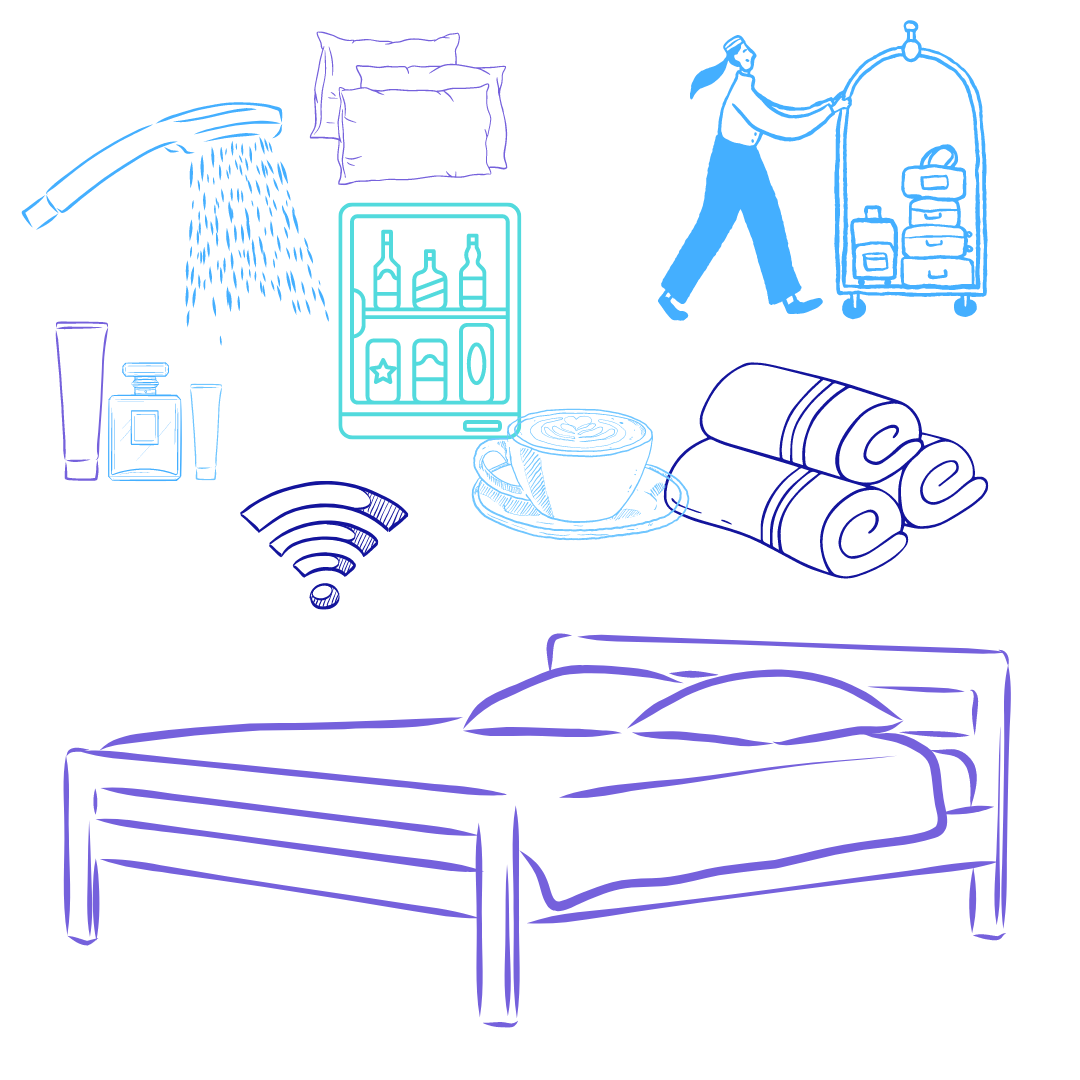
I find that a lot of marketing models can feel unnecessarily complex and so I wanted an easy to remember model to help you develop a product that stands out in the market. Here’s what I came up with…the Joseph BED model.
B is for Basic. That is the basic product that you are offering.
E is for Expected. This is the product that your customers expect.
D is for Differentiated. This is how you stand out and get people to choose you.

Your basic product
The first place to start is the basic product you offer. Given it’s link to the model name, let’s think about a hotel. The basic product is a bed for the night.
For other people it may be a particular kind of advice, a standard product (e.g. jewellery or a specific beverage) or training (e.g. yoga teacher)
Of course it is still important to think about quality and meeting basic needs.
Your expected product
The expected product is what customers can reasonably expect from you.
Your expected product may depend on the price – for example in a 3+ star hotel you would expect toiletries, towels etc. But at a cheaper hotel you are not necessarily expecting these items. At a 5 star hotel you certainly would, and maybe expect a mini bar or luggage service too.
If you offer advice, there will be certain aspects people expect from you based on the area you work in.

As a teacher, you will be expected to have certain knowledge about what you teach. You may be expected to have a basic level of qualification depending on the area you work in.
Using the jewellery example, if I am buying expensive jewellery – I expect diamonds, not cubic zirconia! the expected product depends on the price!

Your differentiated product – where the magic happens
The differentiated product is where things get interesting because how you differentiate your product is where you can stand apart from your competitors.
So thinking about our hotel again, this may be on facilities such as a pool, extras such as breakfast or touches that make guests feel special, like chocolates on the pillow.
Your differentiating features will depend on the market you are looking to attract (and price) – not everyone will be offering a full Butler service!
Differentiation is the key to your success as it is what will make people choose you over alternatives. .
- It may be a physical or perceived difference in the product or service itself (Apple focused on product differentiation and targeting a specific segment).
- It may be additional features or services offered for the same or a discounted price – free chips with a meal!
- Customer service, or an aspect of that (such as the Butler mentioned earlier) may be your differentiator. There are a few restaurants who differentiate themselves with BAD customer service deliberately!
- It may be the distribution channel (this is how Amazon & Uber disrupted their markets)
- A strong brand image and/or awards can also set you apart from your competitors (this can also be related to other differentiators)
- Your values and ethics are also be a way to differentiate yourself (Girlfriend Collective are a great example of this)
One of my favourite examples is from the Oberoi New Delhi, who offer ‘the cleanest air in the city’ as one of their differentiators (as seen in the Channel 4 programme). the installed high efficiency advanced air filters to provide clean air at par with global standards.
A yoga teacher may have a particular approach, higher qualifications, specific experience or combine with other therapies. Jewellery made be focused on a strong brand (such as Pandora), bring in specific designers, e.g. Tiffany’s partnership with Paloma Picasso) or have themed collections.
So as you look to develop or refine a product, consider:
What is the basic product customers are buying?
What do they expect, in order to feel they are getting value?
How can you differentiate yourselves from the competition?
Get in touch
For a no obligation chat about how I can help you, please get in touch on 01707 258 959 or use the button below!